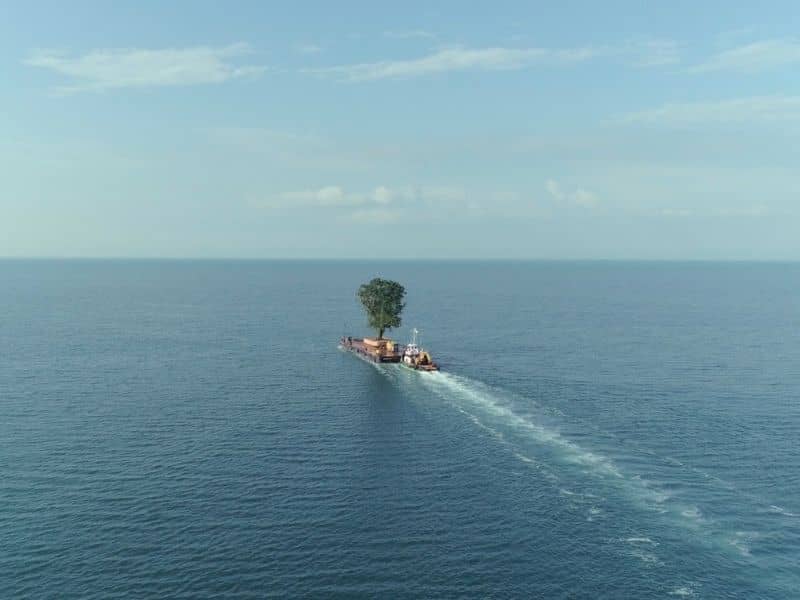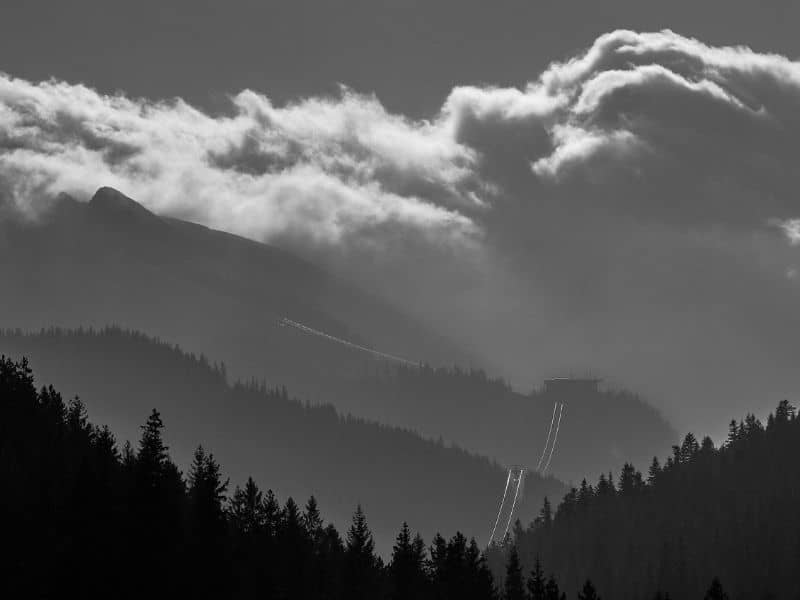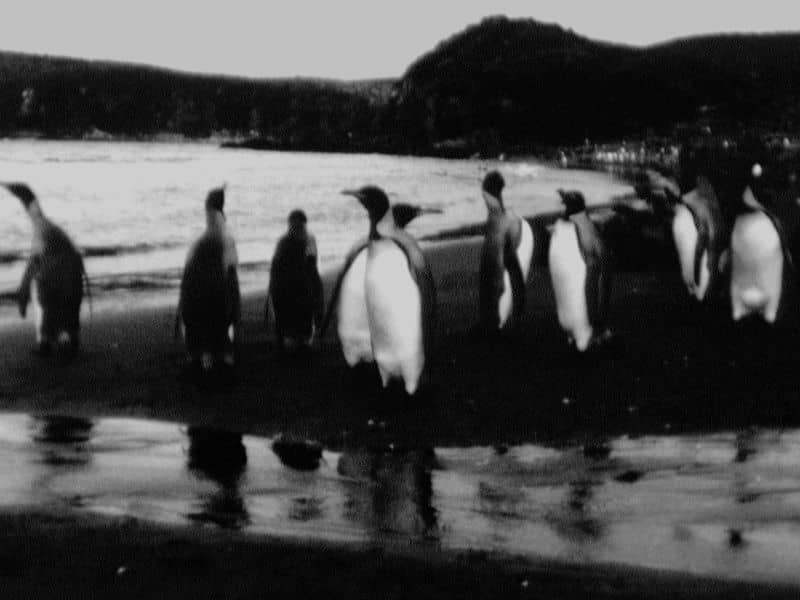Dok.cetera: February Documentary Recommendations
Welcome to Dok.cetera! The new monthly column from Films in Frame focused on all things non-fiction. Here, on the third Wednesday of each and every month we take a closer look at five documentary film recommendations, diving into what makes them worthy of your time and patience and where you can find them. Making up our February documentary recommendations are films currently on the festival circuit, now streaming, and a hidden gem that audiences would be amiss to disregard.
On the Circuit

Landscapes of Resistance (dir. Marta Popivoda) – Serbia, Germany, France
World premiered at the 2021 International Film Festival Rotterdam (IFFR) as one of the only documentary selections of its Tiger Competition, Marta Popivoda’s self-described “partisan film” is a powerful record of testimony from the golden era of anti-fascist direct action. In short, its protagonist, Sofija Sonja Vujanović – born in the former Yugoslavia prior to WWII, and a central figure in the all-female resistance fighters of Auschwitz – relays (alongside Popivoda, the two having formed a long-standing friendship prior to production) the history of her resistance tactics, as well as the realities of life during, and after, the concentration camp. Ultimately, however, the film is the story of an unbreakable spirit and cyclical inspiration. Inspiration for today’s antifa heroes who carry on Vujanović ideals in an age of rising neo-fascism and brutal capitalism desecrating much of the world’s social periphery. Also, the inspiration nonagenarian Vujanović receives back from them and their own, modern version of direct action.
Many of these sentiments are depicted in less than overt ways; voice-over is limited, on-camera interviews sparse. Rather, various forms of terrain (landscapes) etch this story across their surfaces – wrinkled skin harboring a faded identification tattoo, the dense Balkan forests adorning train tracks, the weathered walls and cracked building facades, both old and new. This minimalist storytelling, coupled with Ivan Markovic’s evocative cinematography, allows Vujanović story to breathe, to live within a collective space linking past trauma with current strategy – a transmission of history across generations of resistance.
Landscapes of Resistance is currently making the festival rounds with Paris’ Cinéma du réel (12 – 21 March) up next

Taming the Garden (dir. Salomé Jashi) – Switzerland, Germany, Georgia
One of the most discussed international documentaries from the 2021 Sundance Film Festival, Taming the Garden is a beautifully shot tale of universal caution. Its depiction of Faustian bargains and unfettered resource hoarding results in a prismatic, fairytale-like journey across the Georgian coast – an area adorned for millennia with distinct (and sky-scraping) trees. Over the generations, these trees have become an integral part of a nation’s collective memory, becoming something akin to living spirits, embodying nothing less than the ancestral wisdom of a people and culture. To many, they are also symbols of the country’s socio-political resilience and, whether through resource or relief, the literal protectors of generations. In recent years though, these majestic trees have gradually begun to disappear. This disappearance is not, as you may think, the result of climate change… or even mass corporate development. Rather, one by one, they are being uprooted and transferred via barge to one of the country’s wealthiest men’s private homes for little more than ego-stroking. Though unnamed (simply referred to as Georgia’s most politically powerful man), the mysterious figure’s exotic garden ultimately becomes a symbol of natural exploitation and of those forced into deforestation practices in the ever-present name of “economic opportunity”.
With Taming the Garden, director Salomé Jashi – an award-winning filmmaker with accolades from the likes of Nyon’s Visions du Réel – offers a deeply existential cinematic statement on opportunity and loss, cultural significance and personal arrogance. She forgoes the anthropomorphizing of the natural world, shifting her lens to the universal plight of living beings, both sentient and non.
Taming the Garden can next be seen at Paris’ Cinéma du réel (12 – 21 March) and the 71st Berlinale (1 – 5 March/9 – 20 June)
Now Streaming

The Wind: A Documentary Thriller (dir. Michal Bielawski) – Poland
The Tatra Mountains, a naturally occurring border separating Poland and Slovakia, sets the backdrop for this moody and uniquely observational documentary. Specifically, the film follows the halny – a powerful southerly wind – as it creates a deadly combination of rising temperatures and humidity drops, with sudden gusts responsible for far-reaching physical damage. Trees, bridges, houses, entire forests, nothing is spared from its fury. Aside from this material damage, however, locals – in this case, from Poland’s Podhale region – see the wind as something even more sinister. Over generations, they have believed it to hold an element of mind control resulting in increased suicide rates, unexplainable occurrences, and near possessions. These seemingly supernatural occurrences force Tantra inhabitants to adjust entire lives around its impending, inevitable, and incessant arrivals.
This, the fourth film from Polish documentary auteur Michal Bielawski (1989, Team), utilizes unconventional techniques for non-fiction in its storytelling, creating narratively cinematic, tension building more apropos to psychological horror than traditional documentary. Alongside Cinematographer Bartek Solik, Bielawski juxtaposes wide angles of majestic landscapes with the close-ups of immediate dread adorning Podhalese faces making the halny a character in itself and an undeniable force of (super)nature – one whose actions do not always operate within the realm of reality.
The Wind: A Documentary Thriller is now available on HBO Go

A Glitch in the Matrix (dir. Rodney Ascher) – USA
Is life nothing more than a simulation? Over the past handful of years, the question originally posed in 1977 by Sci-Fi prognosticator Philip K. Dick (and most recently by social media’s favorite pseudo sustainability espousing Bond villain, Elon Musk), has been gaining traction outside of pure conspiracy circles. Surely a result of the many seemingly inexplicable realities occurring across the last half-decade or so (exhibit A perhaps being the sheer existence of a “President” Donald Trump), the question of contemporary life being little more than an algorithmic-based sim for a future society is now as much debated in labs and classrooms as it is on internet chatrooms and LSD trips. Though very likely a natural thought progression for those more technology-minded (Multiverse Theory – where simultaneous realities exist parallel to each other – makes more sense to me, personally, but that’s a story for another day… and magazine), with an open mind and some insight and experience into the trajectory of modern development, simulation theory may not seem too far-fetched after all.
Written and directed by Rodney Ascher (Room 237, The Nightmare), and featuring a slew of colorful characters (many are literal avatars), A Glitch in the Matrix seeks to answer the simulation question through the pop culture reference of the 1999 blockbuster (remember in The Matrix, when the stairwell cat appears twice? Neo’s “deja vu” proclamation becomes said “glitch in the matrix”). In depicting everything from the scientific argument for it, the private citizens who believe it, and the criminals whose lives were destroyed by it (the 2003 “Matrix defense” case of Joshua Cooke is particularly harrowing and brutal), A Glitch in the Matrix offers all possible sides of the theory their own breathing space and doing so in Ascher’s typically accessible, unpretentious way. Following a viewing, perhaps the next natural question is: well, what kind of simulation exactly are we?
A Glitch in the Matrix is now available on various streaming platforms
A Hidden Gem

End of Summer (dir. Jóhann Jóhannsson) – Denmark, Iceland
Jóhann Jóhannsson’s debut film End of Summer is a thirty-minute experimental opus on seasonal change and shifting landscapes far from direct human interaction. Serving as an appropriate introduction to Jóhannsson the filmmaker, as well as his debut feature-length visual poem First and Last Men, the famed Icelandic composer utilizes grainy, super 8 footage from the world’s southernmost corner with his own original droning compositions (collaborating with Joker/Chernobyl’s Hildur Guðnadóttir’s cello and Lichen’s Robert A.A. Lowe synth). The effect occupies the space between travelogue and documentary, art and nature, otherworldly and organic.
Though shot over a nearly three-week span, End of Summer seems to depict a single day, rising with the local penguin’s final seasonal frolic and setting with the sun behind the shards of a desaturated, almost disappeared, glacial shelf. Vast beauty, quiet scenery, and a foreboding sense of finality permeate this mostly static observation on life cycles, natural and otherwise. March of the Penguins it is not, but its metaphysical snapshot of the end of the world at the end of an era offers a quietly contemplative gaze onto the inevitability of loss.
End of Summer is currently available on Mubi
"Came to Bucharest after living in Amsterdam & Brooklyn, among others, Steve is the industry editor for Modern Times Review documentary magazine.


